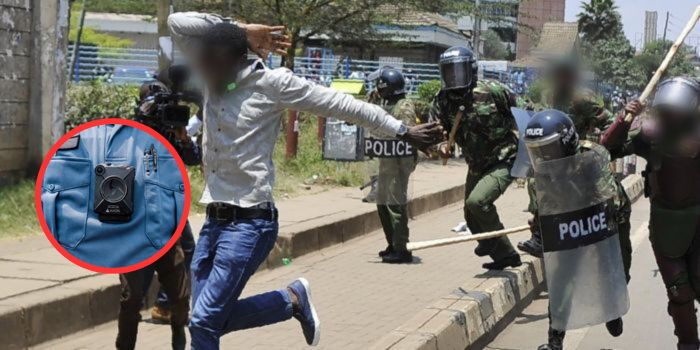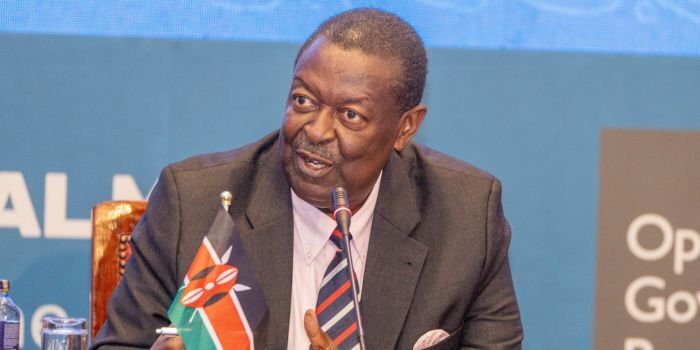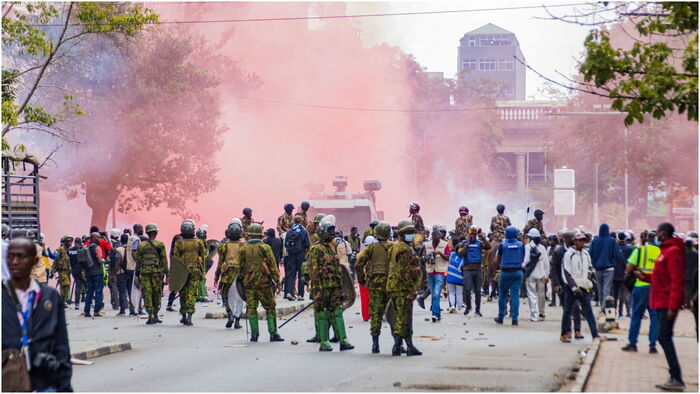In a landmark announcement that could redefine how police handle public protests in Kenya, Prime Cabinet Secretary (PCS) Musalia Mudavadi has revealed that the government is reviving plans to equip police officers with body cameras, specifically for use during demonstrations.
Speaking during an exclusive interview on TV47, Mudavadi underscored the urgent need to boost transparency, accountability, and trust between the public and law enforcement agencies.
This move comes on the heels of widespread protests that have recently rocked the country, many of which were tainted by accusations of excessive police force.
“The intention is to equip police with body cameras to identify the real provocateurs in demonstrations. This will provide clarity on who instigates violence, whether it is the protesters or the officers,” said Mudavadi.
The cameras are not just about capturing footage, they are about redefining narrative ownership. As competing claims of brutality and provocation swirl online, real-time evidence captured by police bodycams will offer unbiased documentation to separate fact from fiction.
However, Mudavadi was quick to caution that the plan will require significant investment and rigorous budgetary planning. “This initiative needs to be systematic and properly funded. It is not just about buying equipment but ensuring it is integrated into a broader accountability framework,” he emphasized.
In defending the country’s security forces, Mudavadi pointed out that the government has continually invested in professional training for officers, and called upon them to match that investment with discipline and integrity during operations.
He also touched on a deeper political undercurrent, accusing certain unnamed individuals of attempting to blackmail President William Ruto by pursuing unconstitutional schemes aimed at forcibly changing leadership.
“There are people who have attempted, and they continue to attempt, to engineer unconstitutional processes of trying to get to power,” Mudavadi warned.
Interestingly, Mudavadi echoed calls made earlier by ODM leader Raila Odinga for national dialogue, stressing that Kenya is at a critical juncture.
“The solution is this: if we do not talk to each other, we will graduate to talking at each other, and then from talking at each other to fighting with each other. So the logical thing is to have dialogue,” he said.
He urged political leaders and civil society stakeholders to approach the issue of national dialogue constructively, warning that the consequences of failed talks could be devastating for the country’s future.
From technological reform to political reckoning, Mudavadi’s statement may be a defining moment in the government’s attempt to rebuild public trust, contain rising unrest, and avert deeper national divisions.






